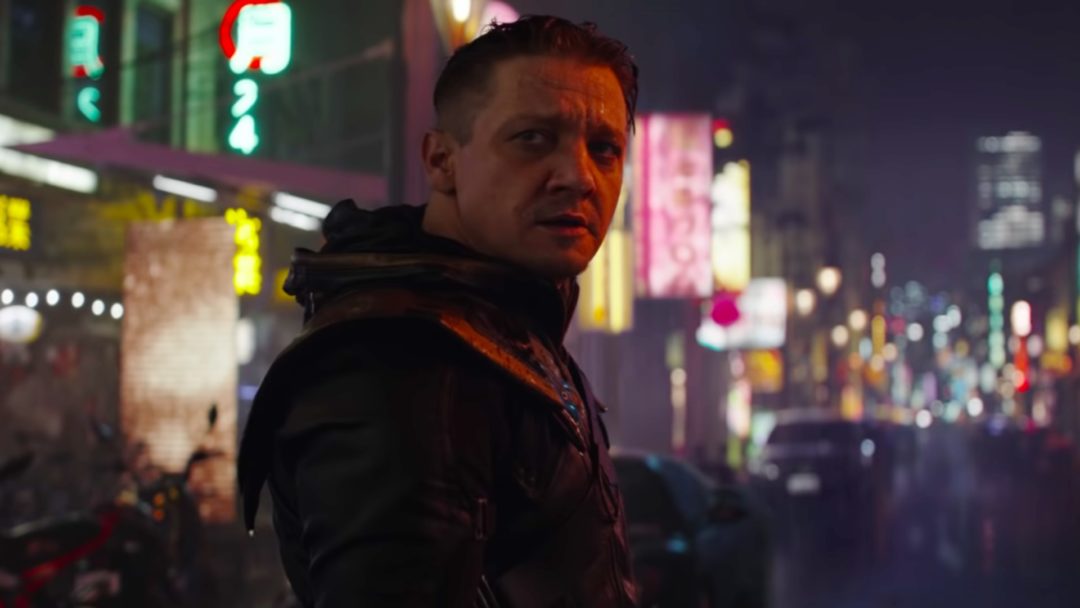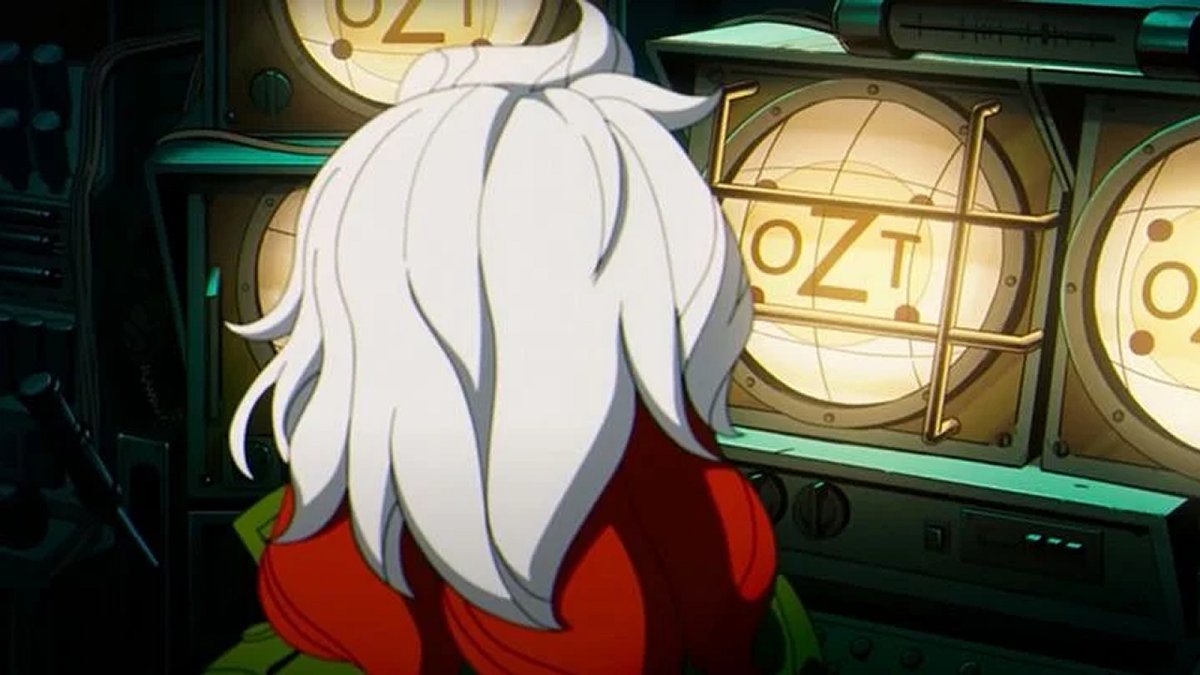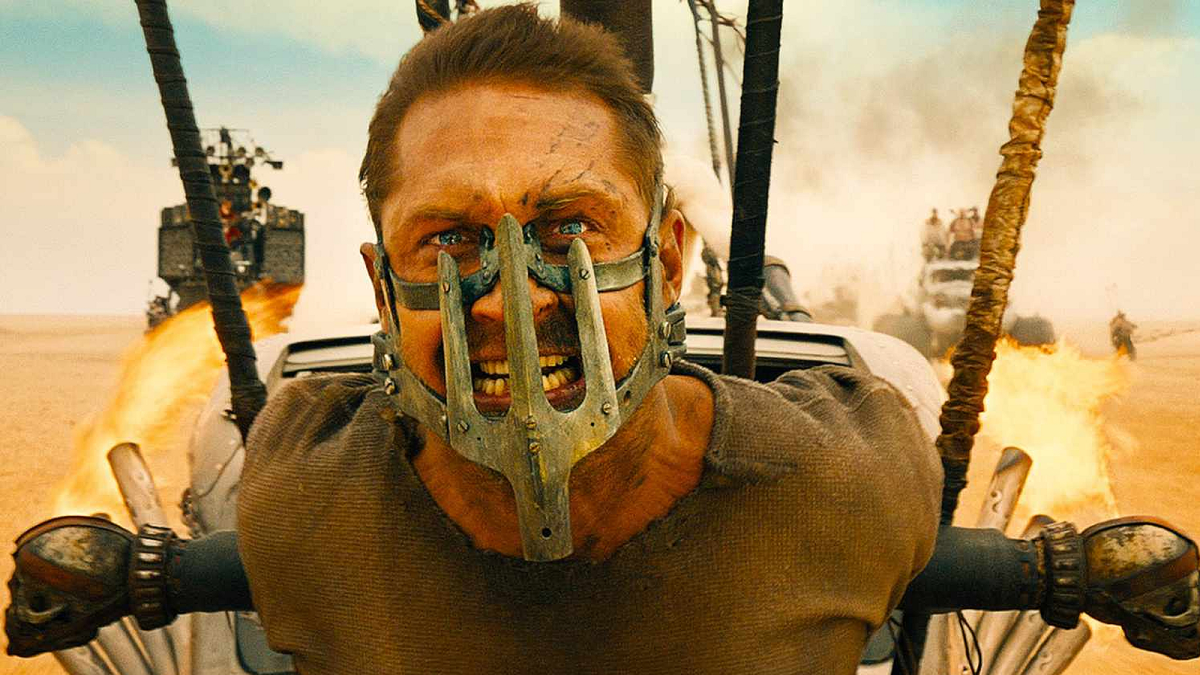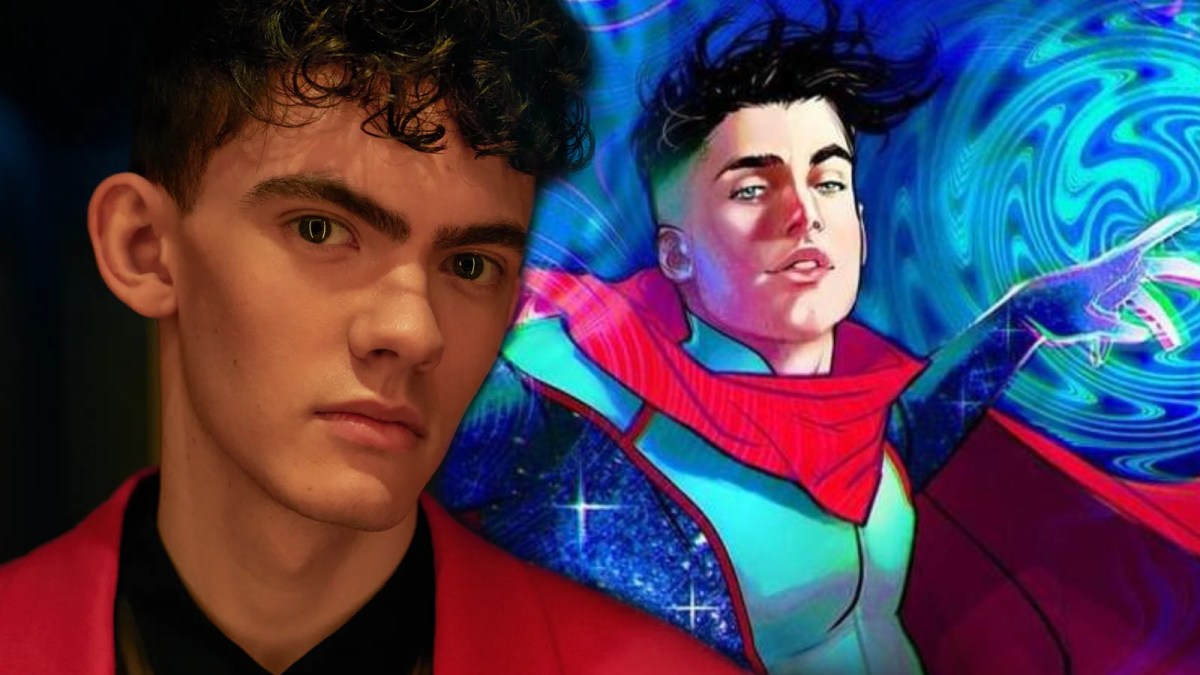This article contains spoilers for Spider-Man: Far From Home, the general Marvel Cinematic Universe, and maybe the secret identities of a few super heroes.
The Marvel Cinematic Universe prides itself on fidelity to its source material.
There are any number of ways that this faithfulness finds expression. There is the inclusion of Skurge in Thor: Ragnarok purely so that the film can awkwardly include a visual homage to an iconic beat from Walt Simonson’s work on Thor. Then there is the decision to model several exact shots in the second season of Daredevil on the work of Frank Miller, the introduction of the concept of legacy heroes in Ant Man, and even the casualness with which the word “multiverse” is thrown around in Spider-Man: Far From Home. The films are full of in-jokes and references that reward long-time fans of the characters and often hark directly back to the comics.
As such, it is notable when the Marvel Cinematic Universe deviates significantly from the comic book canon, when the production team choose to avoid a major component of the narrative language of superheroes. Some of these choices are entirely pragmatic. There was no way that the films could incorporate Tony Stark’s alcoholism from “Demon in a Bottle” while appeasing a family audience with a summer blockbuster. Likewise, the radical reinvention of the Mandarin in Iron Man 3 was a concession to the fact that a yellow peril villain would play very differently nearly half a century removed from his original context. The process of adaptation is not a direct translation; it requires elaboration and innovation.
Still, with that in mind, it is notable how little interest the Marvel Cinematic Universe has in the classic superhero convention of the secret identity. The MCU has consciously and repeatedly eschewed the idea of its heroes hiding behind civilian identities and donning masks to protect their anonymity. This trend can trace its root back to the end of the original Iron Man, in which Tony Stark triumphantly declares to a room full of journalists: “I am Iron Man.” The line was reportedly improvised by Robert Downey Jr. on the spot, but it had a profound impact. Tellingly, Avengers: Endgame recycled those words as Tony’s parting sentiment before clicking his fingers to defeat Thanos. Those words — the assertion of a superhero identity — are a cornerstone of the shared universe.

None of the heroes that followed really maintained a secret identity. There were cases where superheroic characters were introduced posing as civilians — Natasha Romanoff in Iron Man 2, Sam Wilson in Captain America: The Winter Soldier — but once they donned the costumes, there was never a sense that they ever returned to a normal life.
This makes sense for the core cast of The Avengers. Steve Rogers is a soldier and is inseparable from the persona of Captain America. Although Thor had a human alter ego as Dr. Donald Blake in the comics, that proved a logistical nightmare for writers and has long been abandoned. Tony Stark is a celebrity in his own right, and so there is no motivation for him to conceal his identity.
However, the MCU seems to have applied this logic across the board, even to characters for whom it would make sense to preserve a secret identity. Scott Lang might be the most obvious example here. He’s a working-class ex-con with an extended family including a divorced wife and her new husband, along with a wide circle of friends. Even then, Lang makes no effort to conceal his superheroic identity from anyone, including his parole officer.
Another obvious example is Peter Parker. Peter Parker has one of the most iconic secret identities in comics. Unlike Tony Stark, he is not a billionaire. Unlike Thor, he is not a god. Unlike Natasha Romanoff, superheroism is not his day job. Peter Parker is a working-class kid who moonlights as a superhero out of a sense of personal responsibility. As such, his secret identity is an important part of who he is.
The comics (and even the Sam Raimi movies) mined a lot of drama and tension from villains coming close to figuring out Peter’s secret identity, and using it to put him (and the people close to him) in jeopardy. It feels like a bit of cheat when the post-credits teaser to Far From Home has J. Jonah Jameson reveal Peter Parker’s secret identity to the world.
There are arguably a number of different dynamics at play here, all overlapping in the decision to “out” Peter Parker as Spider-Man in a stinger at the end of Far From Home. On a superficial level, this feels like an extension of the “MCU-ification” of Peter Parker, adjusting the character to fit the aesthetics of the kind of stories told by Marvel Studios. Related to that, it speaks to the extent to which Far From Home attempts to erase Peter Parker’s status as a working-class hero in favor of reshaping him to more closely resemble Tony Stark. However, whatever factors are at play here, the net result is the same. Peter Parker’s secret identity has been negated.

It is interesting to wonder why the Marvel Cinematic Universe seems so hostile to one of the basic tenets of the superhero genre. It might be possible to write it off as “realism,” to argue that secret identities are an impossible conceit in the era where every camera is a phone and the internet can deduce an entire movie’s plot from a grainy screenshot snapped during location shooting. However, the MCU has never been particularly concerned about “realism.”
Indeed, Far From Home makes a big deal of this by completely glossing over the emotional trauma of “the blip” in favor of just getting on with its story. (This is the correct call, by the way.) If the audience accepts that Captain America wouldn’t get embroiled in decades of Senate subcommittee hearings over his use of the American flag while unilaterally imposing his will upon the world without oversight, then the idea of Peter Parker concealing his identity with a mask should not be an unreasonable leap.
The difference might be down to broader cultural shifts. After all, social media did not exist when these characters were created. In this day and age, where people tell fantastical (and made up) stories on social media in order to get movie deals, and where everybody relentlessly documents every moment of their own day, it arguably makes it less believable that superheroes wouldn’t be eagerly and consciously managing their brands.
The modern world is very much about asserting identity, not hiding it. Indeed, the abiding superhero origin story of the modern age is about the protagonist asserting who they really are, becoming who they are meant to be, with the civilian identity often feeling like a skin to be shed on the path to self-actualization.
However, there is also a sense in which the prioritizing of superhero identities ahead of civilian concerns fits with the broader aesthetic of the Marvel Cinematic Universe. One of the consistent through lines of the modern superhero universe is an emphasis on the idea of power as an end unto itself. This is most obvious in Infinity War and Endgame. Thanos was largely the protagonist of Infinity War, and he arguably “won” because of his sheer unbending commitment to pursuit of power at all costs. He was willing to do whatever it took to hold unbridled power, even murdering his own daughter.

In contrast, Captain America insisted that there were lines that the characters would not cross. The heroes could have thwarted Thanos repeatedly if they were similarly single-minded — if Peter Quill had tried to kill Gamora quicker, if the Avengers had destroyed Vision before Thanos got to him. In Endgame, it seems the heroes have learned from their mistakes and no longer question power. Bruce Banner taps into the power of the Hulk, abandoning his human body so he can be the Hulk all the time. The heroes work to assemble their own Infinity Gauntlet like Thanos did, jeopardizing four timelines in the process. Endgame suggests that the heroes triumph by seizing the godhood that Thanos so hungrily pursued in Infinity War.
This perhaps hints at the MCU’s anxiety over secret identities. Why would anybody want to be Peter Parker or Tony Stark, when they could be Spider-Man or Iron Man? This isn’t just an issue with the MCU, to be clear. Quentin Tarantino of all people meditated on the tension within Kill Bill: Volume 2 as the eponymous character wondered why Superman would denigrate himself by pretending to be human.
Of course, the entire point of the scene was that Bill was monstrous; his (admittedly very verbose) difficulty in understanding why Superman (or Beatrix Kiddo) would want to live among regular people underscored just how disconnected he was from the world. The film’s answer is implicit in the humanity that it shows towards characters like Beatrix or even Bud; what makes us human is just as (if not more) important as what elevates us. Similarly, Nolan’s Dark Knight trilogy made a point to insist that Bruce Wayne had his own wants and desires quite apart from the broader social need for Batman to exist, whether his desire to elevate Harvey Dent in The Dark Knight or his peaceful retirement in The Dark Knight Rises.
One of the overriding themes of Endgame is the idea of power without responsibility. After leading his people on a journey that got half of them killed, and despite their continued loyalty to him as he descended into self-pity, Thor casually abandons his responsibility to the Asgardians so that he might embark on fun adventures in the cosmos. Despite the fact that Thor is leaving and Iron Man is dead, and that Earth probably needs at least one legacy hero for a little while, Steve Rogers uses a massively powerful time travel device to give himself a happy ending. After all, the film seems to ask, why not? Steve has the power to do this; why shouldn’t he use it to make himself happy?
One of the interesting trends within the MCU has been a drift away from the idea of these heroes as part of a wider community. The original films in the series — Iron Man, Thor, Captain America: The First Avenger — all emphasized the idea of responsibility as central to heroism, that the power entrusted to these heroes was for the common good of other people. Tellingly, these early films gave these characters extended human casts populated by real people with real concerns. These human characters tethered the heroes to the human world and grounded them.

However, as the films went on, the characters became increasingly insular, and heroes began hanging out with other heroes. Bucky became the Winter Soldier; Sam Wilson became the Falcon. Pepper Potts became Rescue. Jane Foster disappeared, replaced narratively by Valkyrie. The Avengers seemed to stop hanging around with anybody outside of work, which made them feel disconnected from normal concerns. Would Steve Rogers be so eager to reverse “the snap” in Endgame if his best friends Bucky and the Falcon weren’t affected? Tony is not motivated to help by the disappearance of three billion ordinary people, but by a photo of him with Peter Parker.
This perhaps illustrates why secret identities feel so inessential to the Marvel Cinematic Universe. There is very little sense that any of these characters have a life or any aspirations outside of their superhero identity. Although, Hawkeye presents the clearest counter-example. Age of Ultron includes an extended subplot in which Clint Barton takes the heroes to a family home that most never knew existed. In that space, the characters contemplate the idea of life outside of what Tony Stark describes as “the mission,” a desire on their part “to go home” once the job is done. This is most pronounced with the scenes between Natasha and Bruce, who seem to imagine a future quite apart from the day-to-day superheroics. It should be noted that these sequences were hugely contentious, even during production. Writer and director Joss Whedon had to fight with Marvel Studios to keep them in the film.
Although those sequences in Age of Ultron were divisive among both critics and fans — dramatically slowing down the pace of a major summer blockbuster for something very much outside the genre’s comfort zone — they arguably paid off in a very profound and moving way.
The stakes in Infinity War and Endgame are universal and epic, with half the universe wiped out of existence in the cliffhanger between the two films. Still, that threat often seemed academic and abstract. The climax of Infinity War only focused on the heroes who were disintegrated, and even the most spoiler-phobic audience member must have known that Peter Parker and T’Challa would not stay dead. The real gut punch comes in the opening scene of Endgame, when Clint Barton loses his entire family. It is a staggeringly human moment, and the most grounded sequence in the duology. It lands like a sledgehammer.
However, the scene couldn’t work with most of the primary cast. Spider-Man is perhaps the only other example of a character who could anchor such a scene, watching the horror of Aunt May or Ned or MJ vanishing right before his eyes. There is no way that a similar scene could work with Doctor Strange or Peter Quill, as all of their friends and family are folded into the superhero game and so accept “universal genocide” as part of the job. The anguish and terror that Clint Barton feels in those opening minutes of Endgame is one of the most human beats in the entire MCU. It’s a reminder of how important it is for these characters to remain human, even as they grapple with galactic threats and godlike opponents.
The secret identity is an important part of that. Some of the most interesting and engaging parts of Homecoming and Far From Home are those that let Peter be Peter. It would be a shame if he were to end up nothing but Spider-Man.





